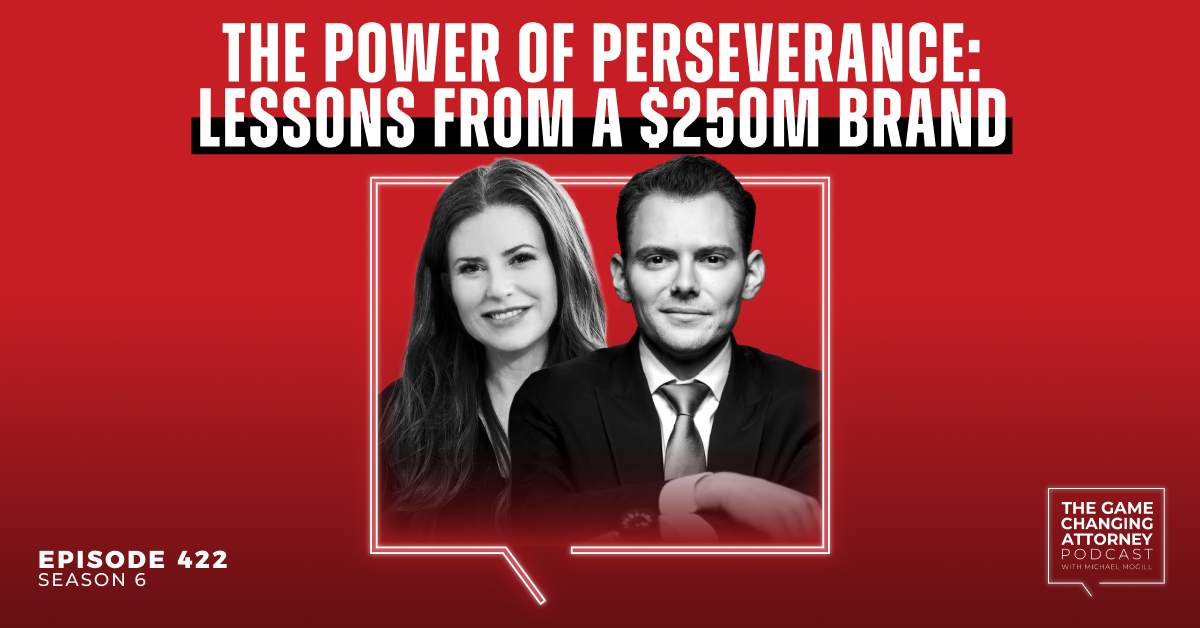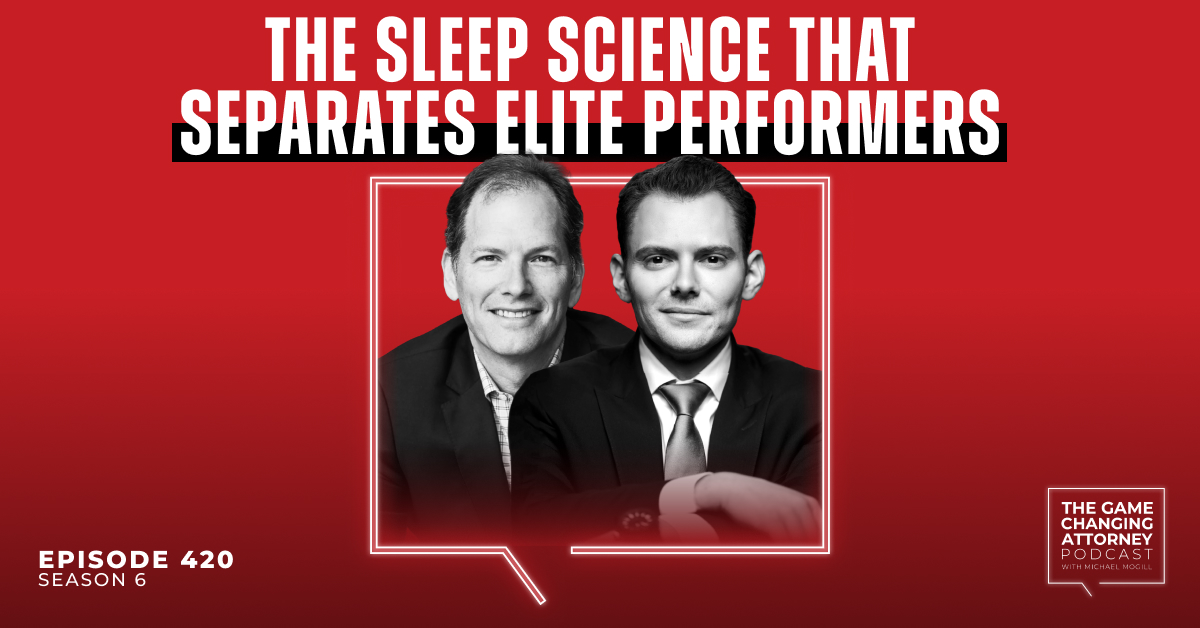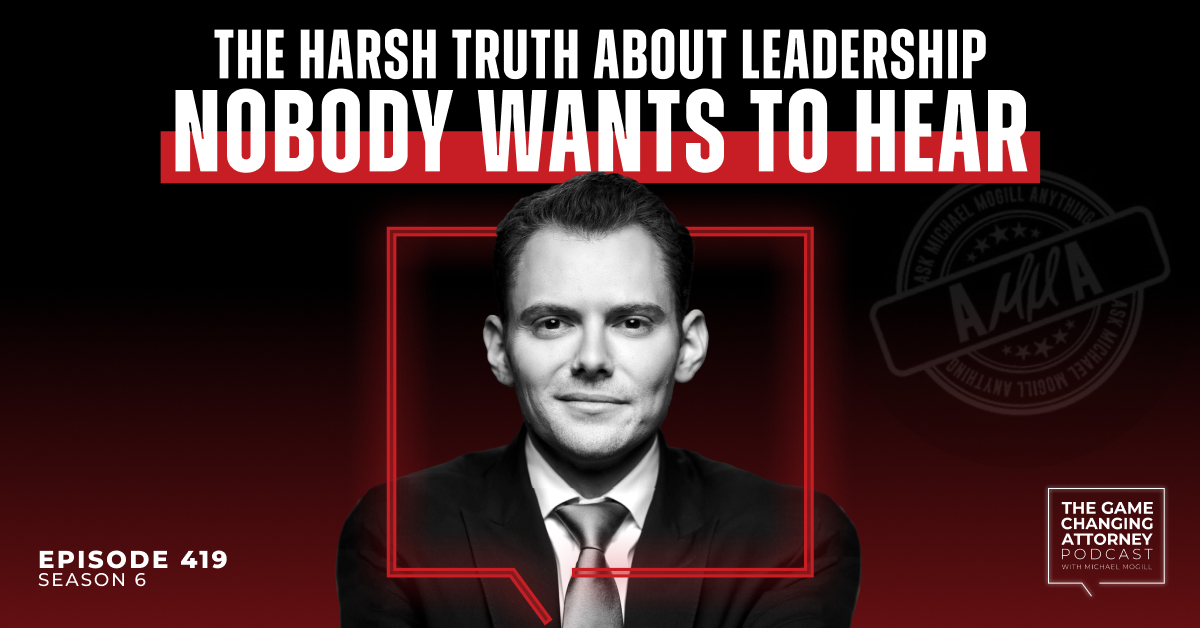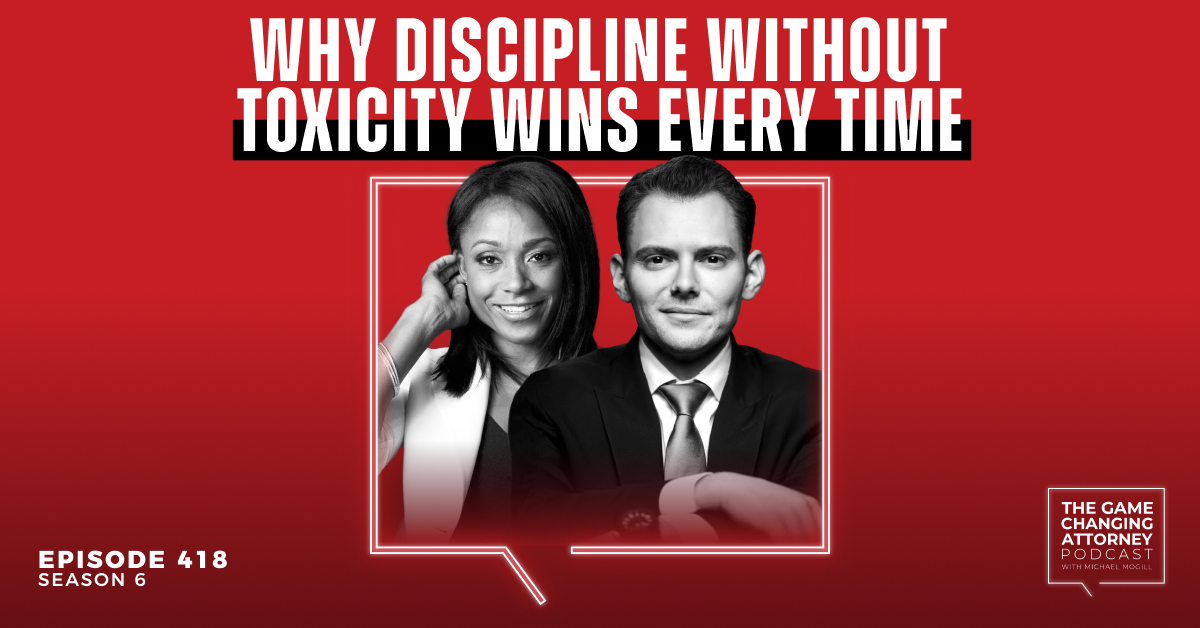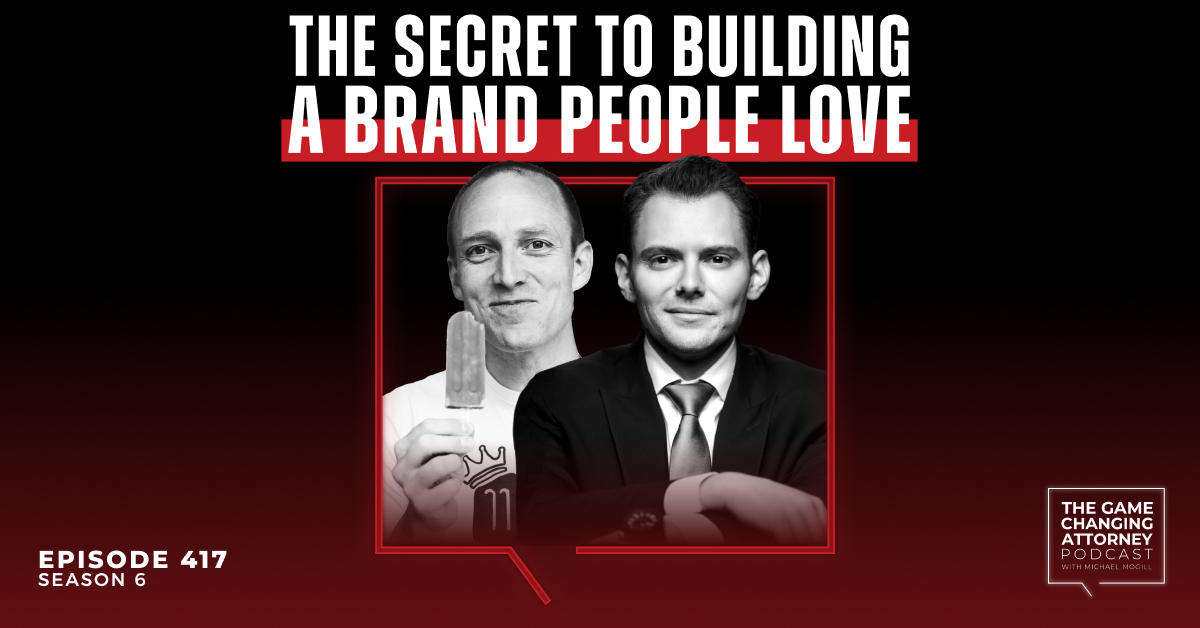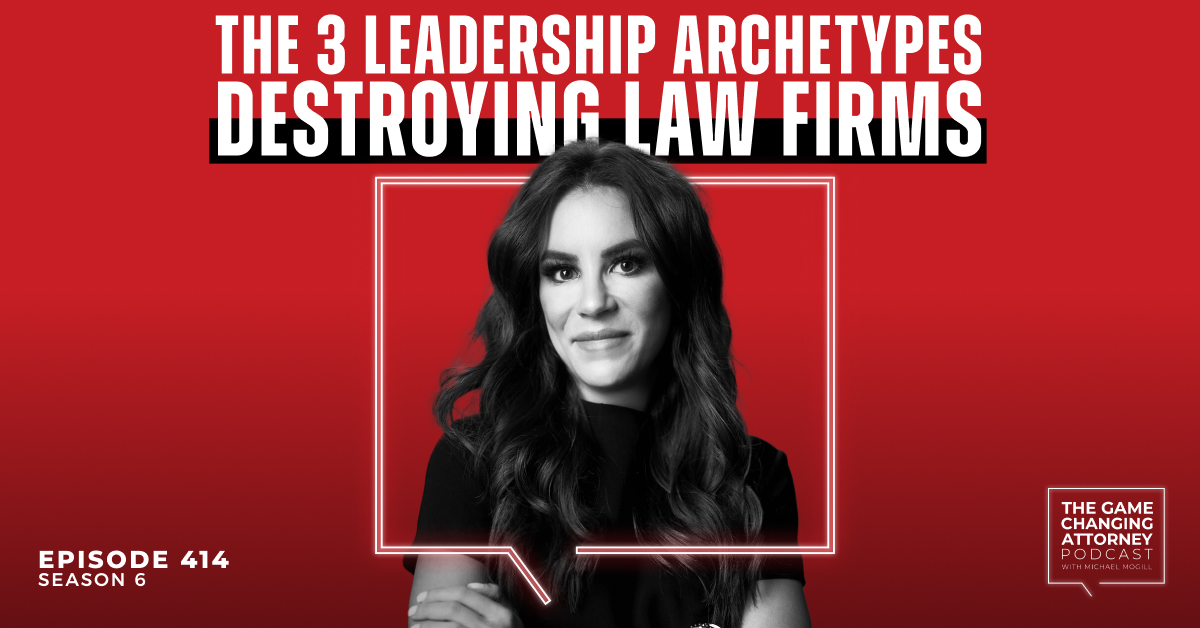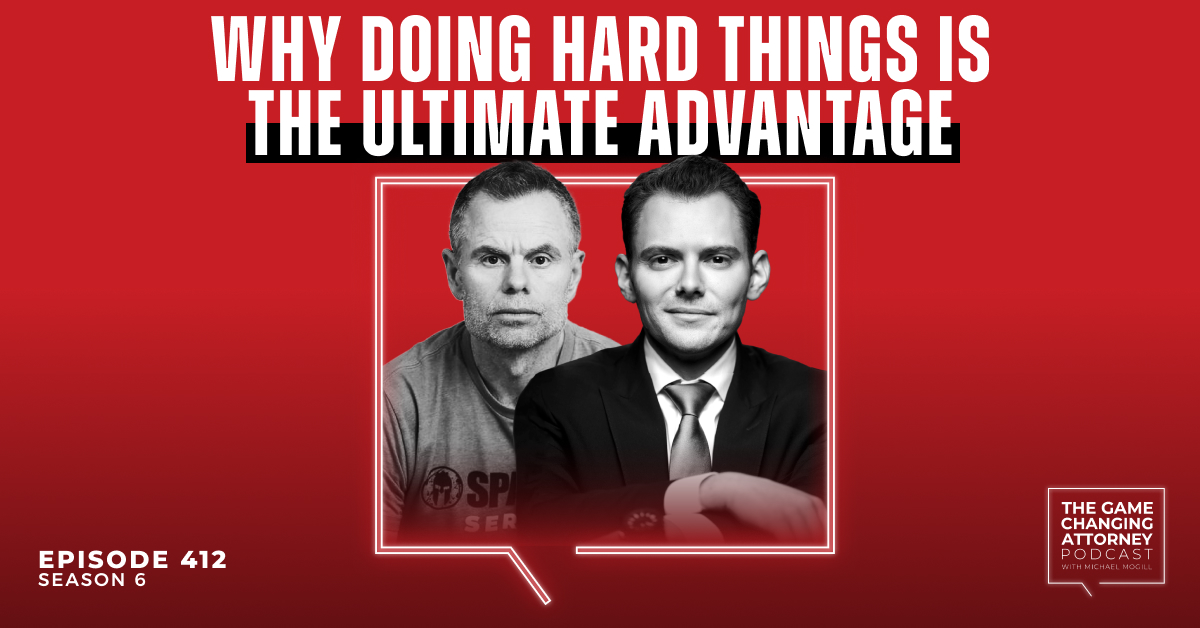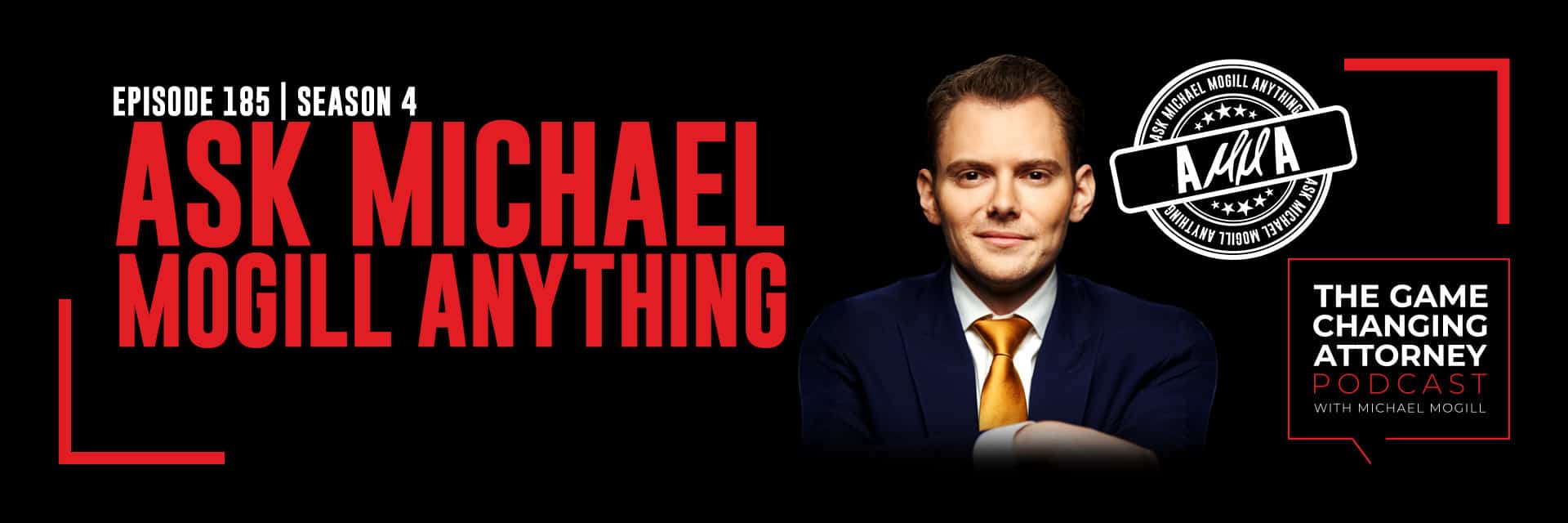
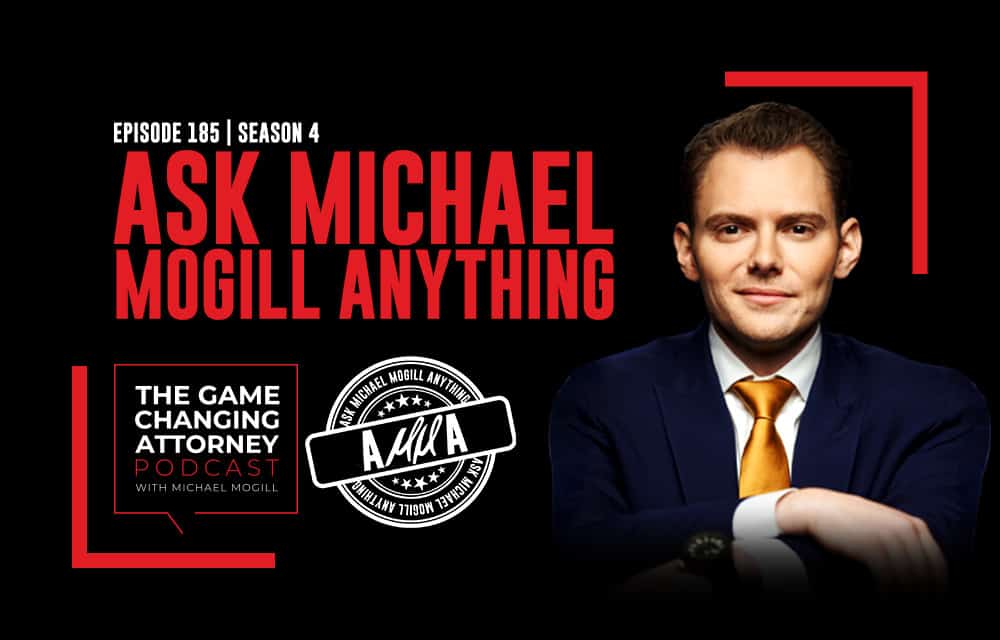
Episode 185 — AMMA — How to Recognize, Reward, and Motivate Your Team
Your team members are people, not machines. Understanding them is the first step to getting them to do their best work for your organization — and feel great about it.
In this episode of The Game Changing Attorney Podcast, Michael Mogill will equip you to recognize, reward, and motivate your team effectively.
You’ll learn:
- The right and wrong way to recognize your team members’ contributions
- How understanding strengths and weaknesses can align your team
- Strategies to motivate and reward your people that actually work
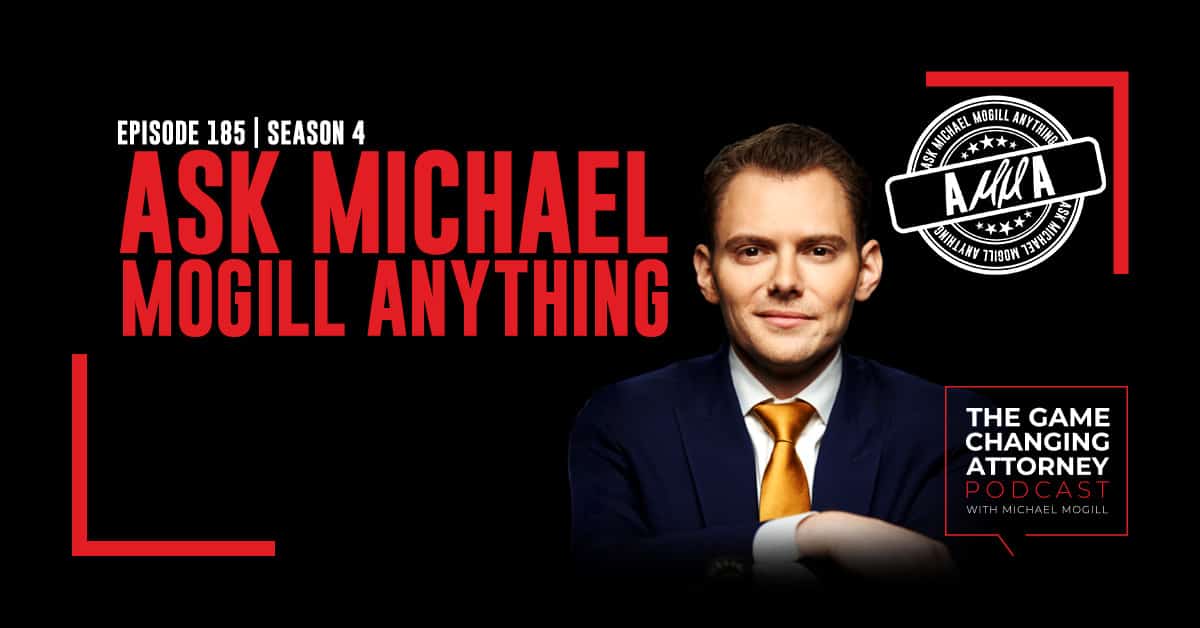
Listen & Subscribe
Show Notes:
Wield your influence intentionally. “Your words can weigh a thousand pounds, and this can go both ways. If you were to criticize a member of your team, when that comes from you, the CEO, that weighs a thousand pounds. That person could be thinking about that for months. Similarly, on the other side, if you were to recognize someone for something that they did in your firm, they can think about that for months as well — and now their performance improves. So why would you not want to recognize them for a performance that goes beyond expectations?”
The right way to play favorites. “If you don’t want to be accused of favoritism, make it a meritocracy. Make it objective. Base it on specific things. If you’re giving everybody recognition — ‘thank you for coming in today; thank you for just having a pulse; thank you for being a warm body; we’re going to promote you just simply because you’ve existed long enough’ — I think that can go in the wrong direction. But we encourage our firms to be very transparent. We have a daily dash that comes out every single day that we share with the entire organization. Every single metric, every single KPI, every single key performance indicator is shared, and everyone’s got their name next to it (myself included). You could see where everybody stands. So when someone’s exceeding targets, everybody knows, and it’s the same way if someone is not meeting targets. Everybody knows as well. So when you’re providing that recognition, if you don’t want to be accused of favoritism, just base it on the results. People can see it. Of course we’re going to recognize it. And look, if that’s going to make someone feel uncomfortable because someone got recognized vs. someone who didn’t, and the one that did get recognized had exceptional results and the one that didn’t is underperforming — well, isn’t that the way that it should be? I mean, that’s kind of the point.”
Is there merit to strengths assessments? “Probably one of the best things that I’ve ever done — and one of the best things that a leader can do — is to learn more about yourself. Now, you can go around asking people for feedback, of saying, ‘Hey, what are my strengths? What are my weaknesses? What am I good at?’ And they’ll give you things that may not always be accurate. It could be based on just their personal dealings with you, or they may not have full context. What a lot of these assessments do is they really shed light on how you operate, and they provide you with a lot of clarity that you may not otherwise know — and knowing these things is one of the most valuable things you can do. You want to really exponentially scale yourself as a leader, grow your organization, make more money, all these things? I would start by really taking these types of assessments seriously.”
Play to your strengths; hire to your weaknesses. “If you know this stuff about yourself in terms of here are my strengths, I’m going to play to my strengths. I’m not going to try to develop weaknesses. Then how do I kind of create an organization that can complement those strengths? So, I take what I’m good at; these are the types of things I’m going to focus on. And all the things that may not be my strengths or may not give me energy, there’s going to be somebody else for whom that is their strength. That’s the person that you can hire or delegate to. You can create this amazing organization where you are focusing on the things that give you energy, that you’re really good at — and everybody else is also focusing on the things that give them energy that they’re really good at, which could be a weakness of yours, but a strength of theirs.”
How to motivate your team. “First off, it starts by not assuming that you know what motivates somebody. When you assume that all people are motivated by the same things, you’re going to be wrong. Some people are motivated by money. Some people are motivated by recognition. Some people are motivated by status. Some people are motivated by titles. It varies by person and the best way to align with that and figure out what motivates someone is just to ask them.”
RESOURCES & REFERENCES
BuzzFeed
CliftonStrengths
Kolbe
Myers-Briggs
PRINT®
AirPods
Lululemon
Bonusly
Connect with Michael
- Text directly at 404-531-7691

